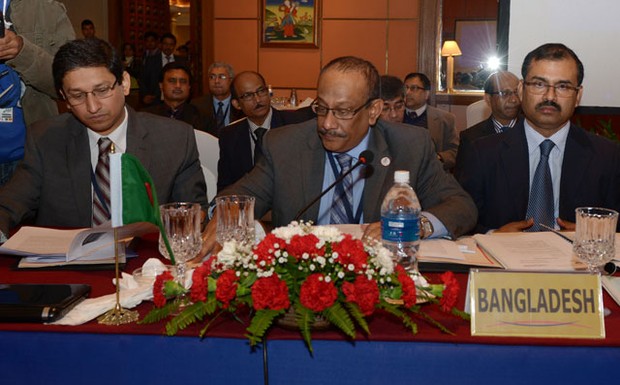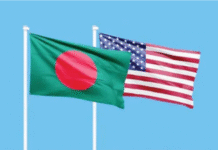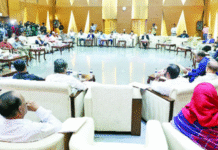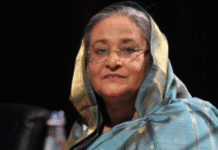Bangladesh is hoping to get the regional connectivity deals signed in the Kathmandu SAARC summit despite foreign secretary-level meeting failing to agree on them.
Now those would be discussed in the foreign ministers’ level meeting on Tuesday, Foreign Secretary M Shahidul Haque said on Monday after ending their secretary level standing committee meeting at a hotel in Kathmandu.
“I can only tell you we are optimistic,” he said as Bangladesh was prepared to sign those road, railway and energy connectivity deals.
But it came to know at the two-day standing committee meeting that some other countries could not prepare them for those signing.
Foreign secretaries from all SAARC members – Afghanistan, Bangladesh, Bhutan, India, the Maldives, Nepal, Pakistan, Sri Lanka – led their respective delegations at the meeting.
The meeting followed a one-day programme committee meeting of senior officials of the member states on Saturday.
Themed on ‘Deeper Integration for Peace and Prosperity’, all heads of state and government will join the final summit on Wednesday and Thursday.
The standing committee took stock of the progress of the earlier SAARC decisions and about the issues that the ministers and the prime ministers’ would discuss.
Bangladesh is one of the proponents of the South Asia’s economic and political grouping, SAARC, that started functioning in 1985.
But the regional grouping is criticised for its failure to show up any collective effort for the people of the region which is home to almost a quarter of world’s population, nearly 40 percent of whom are poor.
Foreign Minister AH Mahmood Ali earlier said Bangladesh would stress on “proper and timely” implementation of the SAARC decisions as it wanted to see this group evolve into an organisation of “common masses.”
Foreign Secretary Haque interacting with Bangladesh journalists, however, said Bangladesh had much to cheer about in particular as it pushed for some of the issues which were agreed by the member states.
He did not mention any of them, but was confident that Bangladesh’s voice would be reflected in the Kathmandu declaration that the leaders will adopt before concluding the summit.
The standing committee discussed various ways of collaboration, but the major areas they had identified include ‘trade in goods and services’ and ‘investments’.
They also stressed on implementation of the previous decisions and lamented that intra-regional trade was not progressing much.
There had been a decision to make an economic union in the region but that was not implemented.
The SAARC Secretariat conducted a study with the help of ADB to find out the ways of implementing the union.
The report styled ‘next step to South Asia economic union’ termed South Asia “one of the least integrated regions of the world”.
The intra-regional trade is less than 5 percent.
It identified four pillars – market liberalisation, sector liberalisation, economic corridor and cross-border connectivity – to make it happen.
“We hope there will be a lot of discussions on those issues,” the foreign secretary said.
“We are optimistic. We’ll gain out of the summit.”
Bangladesh also pushed for a SAARC collective voice in the post-2015 development agenda that the member states at the standing-committee agreed.
Dhaka also proposed to run a “demo” container train from Bangladesh to Nepal through India to show other countries how it could be beneficial.
“There is no time-frame when to start it…there are a lot of technical gaps…But prospect of getting it started looks much brighter now,” Haque said.
The foreign secretary said they had also proposed to start SAARC Seed Bank with an executive order as all countries could not agree on that. “If we can start, then others will follow,” he said citing the meeting discussions.
“It’ll (seed bank) be highly beneficial.”
The standing committee also discussed the status of the nine dialogue partners that include the US, China, and Japan, and agreed that they should come up with “result-oriented and project based-approach”.
They also discussed to make Thimphu-based SAARC Development Fund an effective tool for development activities in the region.
The meeting decided that SAARC Development Report would be presented by 2015.
Prime Minister Sheikh Hasina will lead a 37-member Bangladesh delegation to the summit.
Bangladesh would lay importance on youth development, poverty alleviation, connectivity, education, food security, regional trade, and counter terrorism, for regional cooperation, among others, the foreign minister earlier told journalists in Dhaka.
Source: Bd news24










